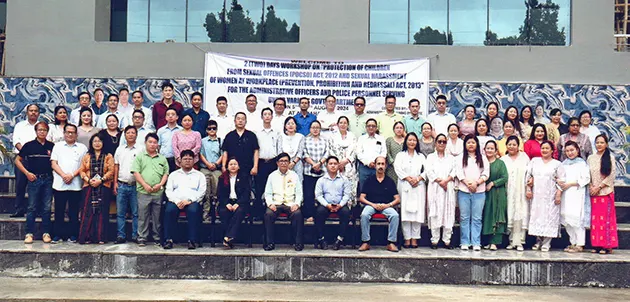NAHARLAGUN, 6 Aug: The Administrative Training Institute (ATI) here organised a two-day workshop on the Protection of Children from Sexual Offences (POCSO) Act, 2012, and the Sexual Harassment of Women at Workplace (Prevention, Prohibition & Redressal) Act, 2013.
The workshop, which started on 5 August, was designed for Group A and Group B officers of various government departments, besides police personnel and members of the Internal Complaint Committee on Prevention of Sexual Harassment Act,2013.
It was aimed at providing comprehensive training on the legal frameworks and mechanisms in place to protect children from sexual offences, and to ensure a safe and respectful workplace environment for women.
“This initiative underscores the commitment of the ATI to enhance the knowledge and skills of government officials in handling sensitive issues related to child protection and workplace harassment,” ATI Director Pate Marik informed in a release.
Yupia-based district & sessions court advocate Jennie Kino, and advocate Tapak Uli, who also serves as a prosecuting officer in the home department, led the sessions on the POCSO Act.
Advocates Taba Zim and Taying Nachup delivered lectures on the Sexual Harassment of Women at Workplace, (Prevention, Prohibition & Redressal) Act, 2013, while the ATI director enlightened the participants about the provisions of the CCS (Conduct) Rules, 1964, with reference to sexual harassment of women at workplace.
“This training programme reflects the ongoing efforts of the state government, the women & child development department, and the ATI to foster a safe, equitable and just environment for all, especially the vulnerable sections of society, including children and women,” the release said.
Through interactive sessions, case studies, and practical exercises, the participants gained valuable knowledge and tools to effectively implement and enforce these Acts within their respective departments, the release added.
The workshop was attended by 58 participants.




